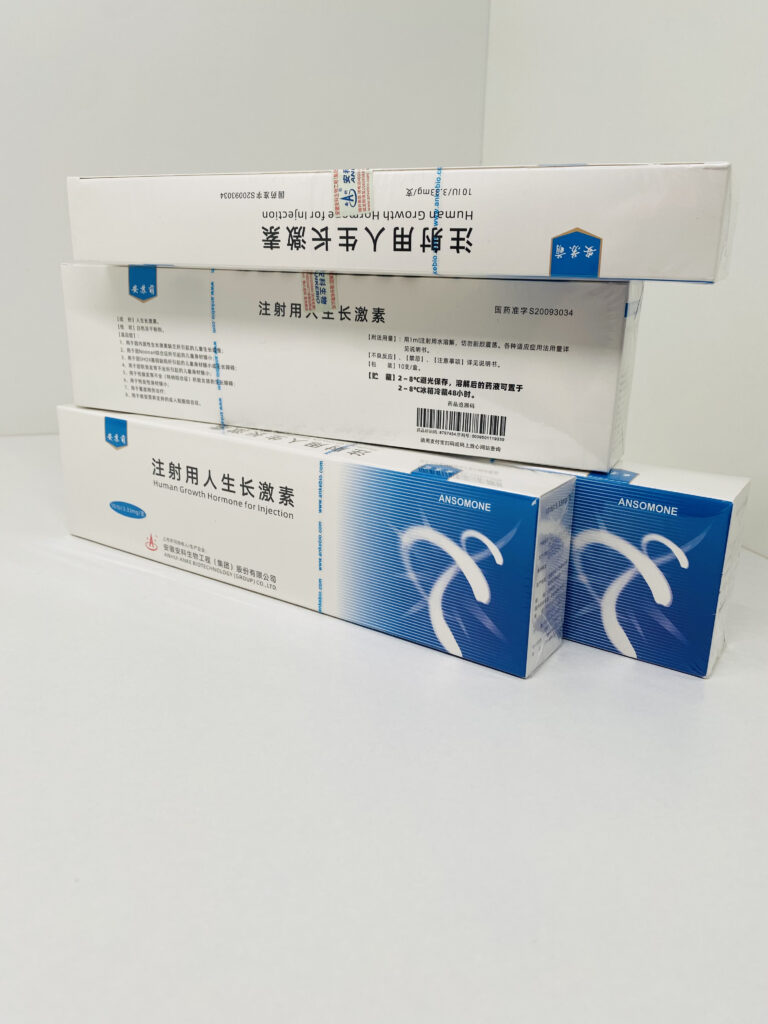Understanding HGH Therapy
Human Growth Hormone (HGH) therapy involves the administration of synthetic HGH to address deficiencies or medical conditions related to growth hormone. It’s essential to have a comprehensive understanding of HGH therapy before embarking on this treatment journey.
Indications for HGH Therapy
- Growth Hormone Deficiency: HGH therapy is primarily prescribed for individuals diagnosed with growth hormone deficiency (GHD). This deficiency can occur during childhood, resulting in delayed growth and development, or in adulthood, leading to various health issues.
- Turner Syndrome: Girls with Turner syndrome, a genetic disorder characterized by short stature and other developmental challenges, may benefit from HGH therapy to improve growth and development.
- Prader-Willi Syndrome: HGH therapy is also used to treat individuals with Prader-Willi syndrome, a rare genetic disorder that causes poor muscle tone, low levels of sex hormones, and a constant feeling of hunger.
- Chronic Kidney Disease: Some patients with chronic kidney disease may experience growth failure due to inadequate production of growth hormone. HGH therapy may help improve growth and muscle mass in these individuals.

Benefits of HGH Therapy
- Improved Growth: For children with growth hormone deficiency, HGH therapy can stimulate growth and development, leading to increased height and bone density.
- Increased Muscle Mass: HGH therapy can help build muscle mass and strength, making it beneficial for individuals with muscle-wasting conditions or those looking to enhance athletic performance.
- Fat Metabolism: HGH therapy promotes the breakdown of fats and aids in weight loss, particularly visceral fat around the abdomen.
- Enhanced Bone Density: HGH stimulates bone growth and mineralization, leading to improved bone density and reduced risk of osteoporosis.
- Improved Mood and Cognitive Function: Some studies suggest that HGH therapy may enhance mood, cognitive function, and overall quality of life in individuals with growth hormone deficiency.
Risks and Side Effects
- Fluid Retention: HGH therapy may cause fluid retention, leading to swelling in the hands and feet.
- Joint and Muscle Pain: Some individuals may experience joint and muscle pain as a side effect of HGH therapy.
- High Blood Sugar Levels: HGH can increase blood sugar levels, posing a risk for individuals with diabetes or those predisposed to the condition.
- Carpal Tunnel Syndrome: HGH therapy may exacerbate carpal tunnel syndrome, causing numbness, tingling, and weakness in the hands and fingers.
Considerations Before Starting HGH Therapy
- Medical Evaluation: Before starting HGH therapy, it’s essential to undergo a thorough medical evaluation to determine the underlying cause of growth hormone deficiency and assess overall health status.
- Consultation with a Specialist: HGH therapy should be prescribed and supervised by a qualified endocrinologist or healthcare provider experienced in hormone replacement therapy.
- Treatment Plan: A customized treatment plan should be developed based on individual needs, including dosage, administration method, and monitoring schedule.
- Monitoring and Follow-Up: Regular monitoring of growth, hormone levels, and potential side effects is essential during HGH therapy. Adjustments to the treatment plan may be necessary based on the patient’s response and ongoing evaluation.
Conclusion
HGH therapy offers significant benefits for individuals with growth hormone deficiency and certain medical conditions. However, it’s crucial to understand the indications, benefits, risks, and considerations associated with HGH therapy before initiating treatment. Consulting with a qualified healthcare provider and adhering to a comprehensive treatment plan are essential steps in ensuring the safe and effective use of HGH therapy.
